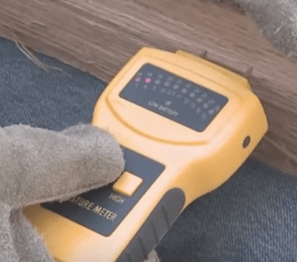 As October comes to an end and we move towards November and the much cooler weather, more people will be using their wood burning stove for both warmth and effect during the winter period. But before you burn wood, make sure it is correctly seasoned, and not “wet”.
As October comes to an end and we move towards November and the much cooler weather, more people will be using their wood burning stove for both warmth and effect during the winter period. But before you burn wood, make sure it is correctly seasoned, and not “wet”.
A moisture meter is designed to accurately indicate the percentage of water in wood. A measurement anything above 25% moisture is considered “wet wood”. There are a large number of risks associated with burning wet wood including:
.
1. Increased risk of chimney and house fires – Burning wet wood, can create an accumulation of heavy soot and tar in chimneys and liners. Over time the soot and tar can build up, which can cause chimneys fires, which in-turn could also cause house fires.
.
2. Triggering backdrafts – This is when air flows back down a chimney, towards the fire, and are a risk factor that can be caused by burning wet wood.
.
3. Production of dangerous chemicals – Burning wet wood can create toxic smoke that can impact on health.
.
4. Low heat output – Burning wet wood causes a low heat output and also “wet wood” fires tend to be harder to keep alight too.
.
To burn wood effectively, the moisture content needs to be below 20%. To use a moisture meter you simply press its prong or prongs into the wood for a quick and accurate reading. Moisture meters can also be used to detect moisture in wood floors and buildings too.
.
By using a moisture meter you can help avoid the above risks, and ensure that you are only burning fire ready wood.
Learn more about our range of fires and wood burning stoves – Download our brochures and view the range from the comfort of your own home.








